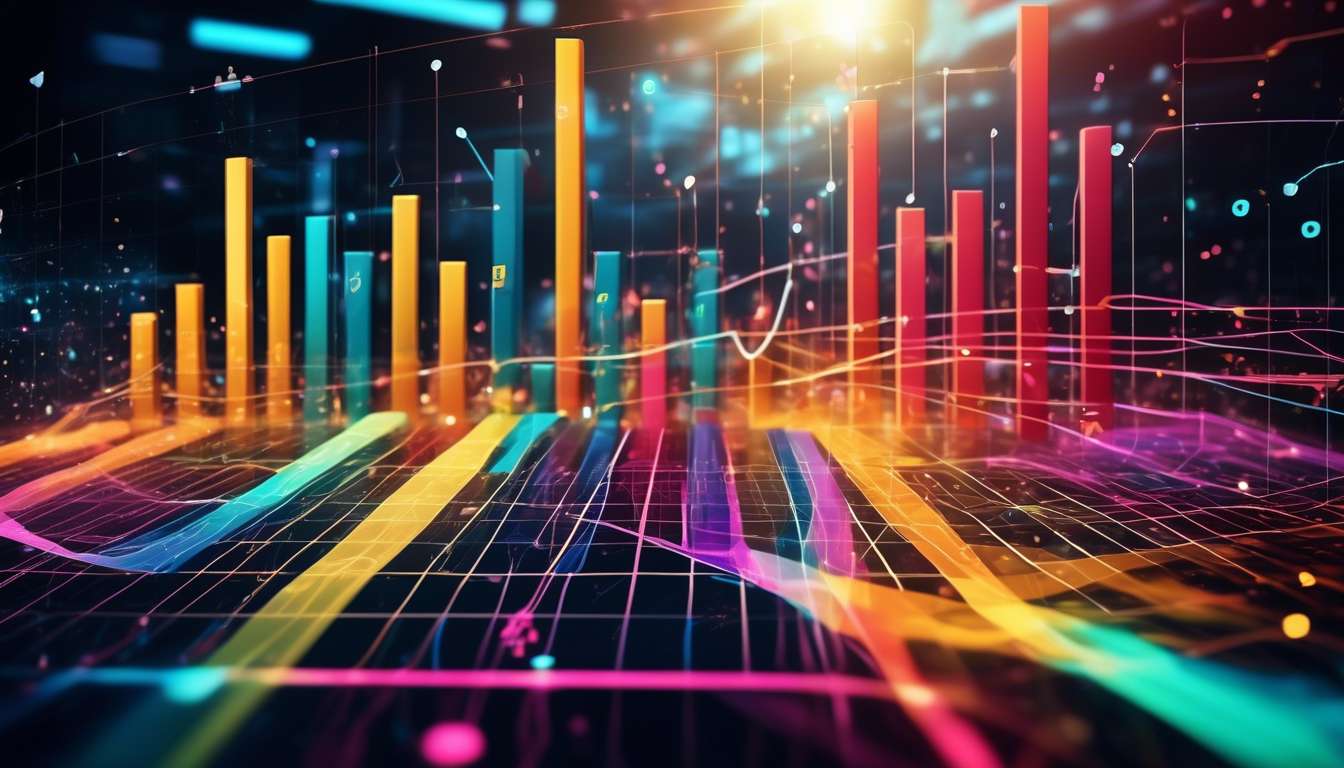When we think about betting odds, our minds often jump to sports events or the latest horse races. However, there’s a whole world of predictions that these odds can uncover, revealing insights that many of us might not be aware of.
As enthusiasts of probability and statistics, we find ourselves continually fascinated by the intricate dance between numbers and outcomes. Betting odds are not just for gamblers; they are powerful tools that help us understand the likelihood of various events, from political elections to reality TV show outcomes.
Through this article, we aim to explore seven intriguing aspects of betting odds that might surprise even the most seasoned bettors among us. Together, we will delve into:
- How these odds are calculated
- Their impact on decision-making
- The surprising ways they influence our perceptions of events
Join us as we uncover the lesser-known facets of this fascinating world.
The Mathematics Behind Odds
Understanding the mathematics behind odds is crucial for evaluating probabilities and potential payouts in betting scenarios. When we grasp these concepts, we become part of a community that sees betting through a lens of logic and strategy, rather than mere chance.
Odds reflect two key aspects:
- The likelihood of an event occurring.
- Our potential return on investment.
By mastering predictions, we can make informed decisions that align with our goals.
In our journey to decode odds, predictive analytics becomes our compass. It empowers us to:
- Break down past data and trends.
- Identify patterns.
- Anticipate outcomes with greater accuracy.
This shared knowledge is like a secret language among us, a code that enhances our betting strategies.
We’re not just placing wagers; we’re engaging in a sophisticated dance of numbers and probabilities. By embracing the mathematics of odds, we elevate our game, becoming part of a group that values:
- Knowledge.
- Precision.
- The thrill of informed decision-making.
Psychological Biases in Predictions
Many of us fall prey to psychological biases that skew our predictions and cloud our judgment in betting scenarios. It’s crucial to recognize these biases so we can make more informed decisions.
One common bias is the overconfidence effect, where we overestimate our ability to make accurate predictions. We might feel certain about the odds being in our favor, only to realize later that we underestimated the complexity of the situation.
Another bias we often encounter is the availability heuristic. This happens when we:
- Rely on recent, vivid memories rather than objective data.
- Make predictions based on memorable wins or losses instead of actual probabilities.
As a community, we should strive to be aware of these biases to improve our predictive capabilities. By acknowledging our cognitive pitfalls, we can:
- Better interpret odds.
- Employ predictive analytics to make smarter, more rational decisions.
Together, we can foster a more informed and supportive betting experience.
Impact of Public Opinion on Odds
Public opinion can significantly shift betting odds by driving collective expectations and sentiments. When there’s widespread buzz about a particular outcome, the odds often change to reflect this shared enthusiasm or skepticism.
Communal Influence:
- This influence isn’t just about casual chatter; it shapes predictions in ways that predictive analytics strive to quantify.
- People find comfort in being part of a larger group, sharing insights, and seeing their collective thoughts influence the world of betting.
Impact on Odds:
- A surge of support for a team or player can tip the scales, altering odds and making some predictions seem more likely.
- Interactions on social media and in conversations create a feedback loop that can amplify or diminish perceived probabilities.
Community Involvement:
- The communal aspect of prediction-making fosters a sense of unity and involvement.
- Our voices collectively contribute to the odds landscape, actively shaping the betting environment.
It’s fascinating to see how our shared opinions not only reflect what might happen but also actively shape the betting environment itself.
Evolution of Predictive Models
In recent years, we’ve witnessed a rapid advancement in predictive models, transforming how we analyze and interpret betting odds. As a community passionate about predictions, we’ve embraced these changes, finding ourselves at the forefront of an exciting evolution in betting analytics.
Predictive analytics has empowered us to delve deeper into data, offering insights that were once beyond reach. By incorporating complex algorithms and machine learning techniques, these models allow us to identify patterns and trends with unprecedented accuracy.
Our collective understanding of odds has grown significantly. We’ve moved beyond simple gut feelings and embraced a more data-driven approach, blending our intuitive insights with sophisticated predictive models. This progress not only enhances our predictions but also strengthens the bonds within our community as we share insights and collaborate on strategies.
Together, we’re navigating this dynamic landscape, continually refining our methods. The evolution of predictive models invites us all to participate, learn, and grow, fostering a deeper connection with the world of betting.
Unconventional Uses of Betting Odds
Betting Odds Beyond Gambling
Often, we find that betting odds serve purposes beyond traditional gambling, offering unique insights and applications in various fields. As a community that thrives on connection and understanding, we can appreciate how odds and predictions transcend their gambling roots.
Integration into Predictive Analytics
By integrating betting odds into predictive analytics, we gain valuable perspectives on diverse scenarios, including business strategies and social trends. Organizations have used odds to:
- Anticipate market shifts
- Predict consumer behavior
These insights effectively guide decision-making processes.
Applications in Politics
In politics, odds offer a fresh lens through which to view election outcomes. They provide a collective sentiment that can be more telling than polls alone, offering a unique perspective on potential results.
Healthcare Insights
Moreover, healthcare professionals can leverage predictive analytics, informed by odds, to:
- Foresee patient outcomes
- Anticipate potential health crises
Fostering Connections and Progress
By embracing these unconventional uses of betting odds, we strengthen our connections within industries and communities. We’re not just predicting the future; we’re shaping it with informed insights, driving progress, and fostering a sense of belonging through shared knowledge and purpose.
The Role of Technology in Prediction
Technology plays a pivotal role in enhancing our predictive capabilities by processing vast amounts of data with unprecedented speed and accuracy. In our interconnected world, we rely on sophisticated algorithms to analyze data and provide more accurate predictions and odds than ever before.
Predictive analytics is a key component in this process, empowering us to:
- Identify trends and patterns that would otherwise remain hidden.
- Boost our confidence in making informed decisions, whether we’re placing bets or navigating our daily lives.
As a community that values connection and shared experiences, we recognize how these technological advancements unite us in understanding complex probabilities.
The enhanced accuracy of predictions fosters a sense of belonging by creating a level playing field where information is accessible to all. Together, we can appreciate how technology not only refines the odds but also bridges gaps in knowledge, enabling us to engage with predictions in meaningful ways.
With technology at our side, we forge deeper connections and share in the excitement of potential outcomes.
Ethical Considerations in Odds Making
Ethical Implications of Technology-Driven Predictions
As we delve into odds making, we must address the ethical implications that arise from our reliance on technology-driven predictions. Predictive analytics have transformed how we approach odds, offering precision and insights that were once unimaginable. However, with this power comes responsibility. We, as a community, need to ensure that the use of these predictive tools respects fairness and transparency.
Bias in Algorithms
When crafting odds, it’s crucial to recognize the potential bias embedded in algorithms. If our predictions inadvertently favor certain outcomes, we risk alienating bettors who trust us to provide a level playing field.
To address this, we must:
- Scrutinize these systems
- Ensure they reflect diverse perspectives
- Uphold ethical standards
Privacy Concerns
Moreover, the accessibility of predictive analytics raises questions about privacy. We must protect the data we gather, ensuring it’s used ethically and with consent.
Building Trust and Accountability
By fostering an environment of trust and accountability in odds making, we strengthen our community, making sure everyone feels valued and understood. This involves:
- Ensuring transparency in our methods
- Promoting fairness in predictions
- Protecting user data and privacy
By adhering to these principles, we can navigate the complexities of technology-driven predictions ethically and responsibly.
Future Trends in Predictive Analytics
In the coming years, groundbreaking advancements in predictive analytics will reshape the landscape of odds making. As technology evolves, our community will embrace more sophisticated tools that enhance our ability to generate accurate predictions. These tools will help us feel more connected and confident in our betting decisions, fostering a sense of camaraderie among like-minded enthusiasts.
We’re on the cusp of integrating AI-driven models that will drastically improve how we calculate odds. These models will analyze vast datasets, uncovering patterns and trends previously hidden from view. By harnessing this power, we’ll refine our predictions with unprecedented precision and reliability.
Moreover, we’ll see predictive analytics become more user-friendly and accessible. This democratization will allow more of us to participate actively, expanding our shared knowledge and experiences.
As we explore these future trends together, our collective insights will strengthen, creating a thriving community where everyone feels valued and informed.
Let’s embrace this exciting journey into the future of predictive analytics!
How do bookmakers determine the initial odds for a sporting event?
When we set the initial odds for a sporting event, we consider various factors, such as:
- Team strength
- Player performance
- Historical data
Our goal is to create a balanced betting market to ensure fair competition and attract bettors on both sides of the wager.
By analyzing all these elements, we aim to provide accurate and enticing odds that reflect the possible outcomes of the game.
What are the legal implications of betting odds in countries where gambling is restricted?
In countries where gambling is restricted, legal implications surrounding betting odds can be significant. Regulations vary, impacting how odds are displayed and bets are placed.
Understanding these laws is crucial to ensure compliance and avoid penalties. It’s essential to stay informed about the legal landscape to navigate betting responsibly.
Compliance with restrictions is vital to safeguarding oneself and enjoying the thrill of betting without running into legal trouble.
How do betting odds vary across different sports and what factors contribute to these variations?
Betting odds can vary significantly across different sports due to various factors.
Key Factors Influencing Betting Odds:
-
Level of Competition: The strength and competitiveness of teams or players can greatly impact odds.
-
Historical Performance Data: Past performances and statistical data are crucial in setting odds.
-
Popularity of the Sport: More popular sports often have more balanced odds due to increased betting activity and available information.
-
Complexity of the Sport: Sports with intricate rules and strategies may have more unpredictable outcomes, influencing the odds.
-
Number of Variables: The more variables that can affect the outcome, the more fluctuation there is in the odds.
Conclusion:
Understanding these factors can help us make more informed decisions when placing bets. By analyzing competition levels, historical data, and the inherent complexity of the sport, bettors can better predict outcomes and potentially increase their chances of success.
Conclusion
You’ve now delved into the intriguing world of betting odds and predictions. Remember, behind the numbers lie complex mathematics and psychological influences.
Key Influences on Betting Odds:
- Public opinion can sway odds.
- Evolving models and technology continuously enhance prediction accuracy.
As you ponder the unconventional applications and ethical implications, keep an eye on future trends in predictive analytics.
Stay informed, stay curious, and keep exploring the fascinating realm of odds-making.




